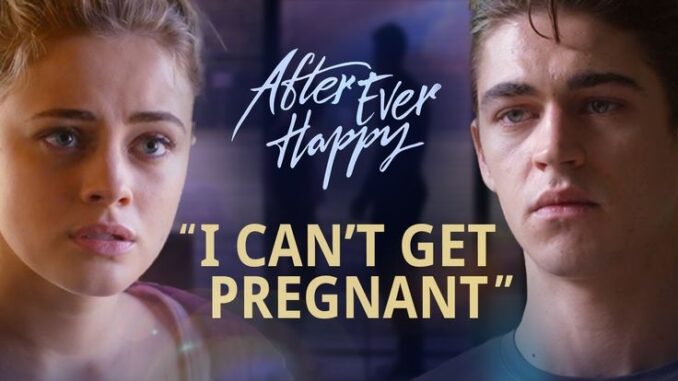
When After Everything hit screens, fans of the steamy After series were eager to see the return of their beloved lead characters—Tessa Young and Hardin Scott. But within minutes of watching the final chapter, viewers were left wondering the same thing: Where is Tessa? Josephine Langford, who has anchored the franchise since the very beginning, appears in only a handful of scenes. Her absence is more than noticeable—it’s practically the emotional core missing from the film. So why is the character so scarce in what is supposed to be the epic conclusion of the After saga?
One of the biggest reasons Tessa is barely in After Everything is that the film was designed as Hardin Scott’s story. Unlike previous entries that revolved around the highs and lows of the Tessa-Hardin relationship, After Everything chooses to explore Hardin’s personal growth. It’s about him facing his past, seeking forgiveness, and finally stepping out of the toxic cycles that defined much of his romance with Tessa.
While the storyline provides an in-universe reason for Tessa’s absence, the reality behind the camera is more telling. Reports indicate that After Everything was filmed secretly and quickly after the fourth installment wrapped. By that point, Josephine Langford had reportedly fulfilled her contractual obligations, and it’s likely she was unavailable—or uninterested—in reprising the role for a full shoot. Instead, producers may have chosen to build a new narrative arc using existing footage, brief new scenes, and a completely Hardin-centered story. This strategy allowed Hero Fiennes Tiffin, who plays Hardin, to carry the weight of the film while giving Langford a graceful, albeit reduced, exit.
Another key reason for Tessa’s reduced role is that her story with Hardin had largely reached its natural conclusion in the previous film, After Ever Happy. The couple had gone through countless ups and downs—breakups, betrayals, passionate reunions, and life-altering events. By the time the credits rolled on the fourth film, their future together was all but solidified. With most of their emotional battles resolved, After Everything didn’t need to rehash old conflicts or create unnecessary drama. Instead, the film respected the audience enough to say: Tessa has done her work. Now it’s Hardin’s turn.

Tessa’s limited screen time isn’t just a logistical or narrative decision—it carries symbolic weight. Her absence forces Hardin to confront himself without leaning on her as an emotional crutch. In earlier films, Tessa often served as both his savior and his shield. She bore the brunt of his volatility and still managed to see the good in him. But After Everything challenges Hardin to become the man worthy of love, rather than expecting it unconditionally. He has to face Natalie, apologize to his mother, endure loneliness, and even burn his own manuscript as a form of penance.
Others, however, appreciated the shift. For longtime viewers, watching Hardin finally grow up and take accountability was deeply satisfying. They viewed the film as a mature evolution rather than a betrayal of the central love story. Still, the emotional punch of the final scenes—where Tessa reappears, and the couple ultimately reunites—left many feeling both relieved and nostalgic. Her return wasn’t flashy or dramatic, but it brought a sense of closure that long-time fans craved.
With After Everything marking the end of the core series, Josephine Langford seems ready to move on. She’s already attached to several upcoming film projects and has been actively expanding her range beyond romance. Her portrayal of Tessa will always remain iconic within the After fandom, but like many young actors tied to franchise roles, she’s charting a new path.
Though Tessa Young barely appears in After Everything, her presence is felt throughout. She is the reason Hardin changes. She is the memory he clings to, the standard he holds himself to, and the love he hopes to be worthy of. Her reduced screen time is not a sign of diminished importance—it’s a reflection of a story that has finally grown up. And in stepping back, Josephine Langford’s Tessa allows Hardin—and the franchise—to find closure, not through chaos, but through quiet transformation. In the end, After Everything isn’t just the end of a love story—it’s the beginning of self-love, maturity, and the beautiful realization that sometimes, the most powerful presence is the one that gives you space to grow.
